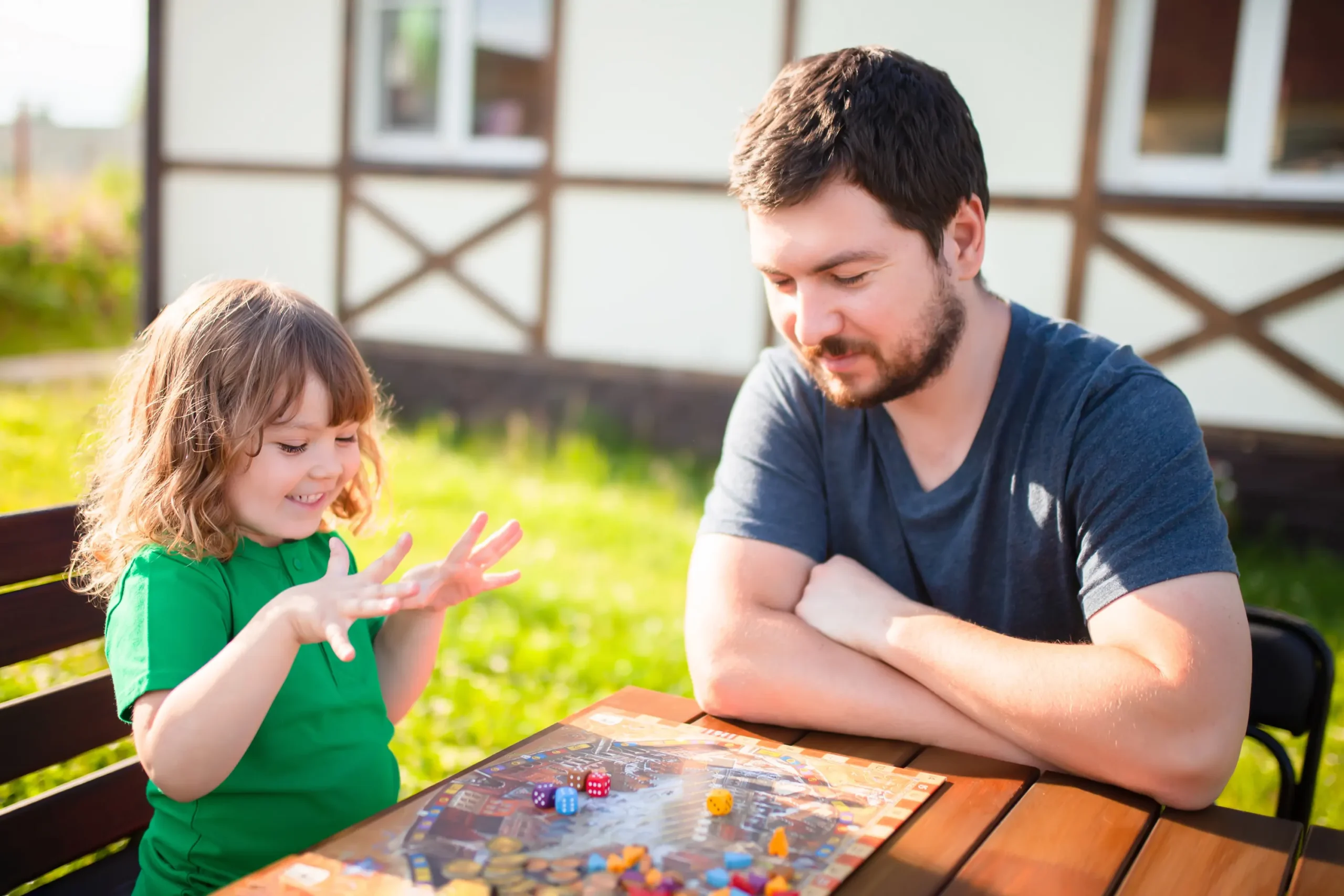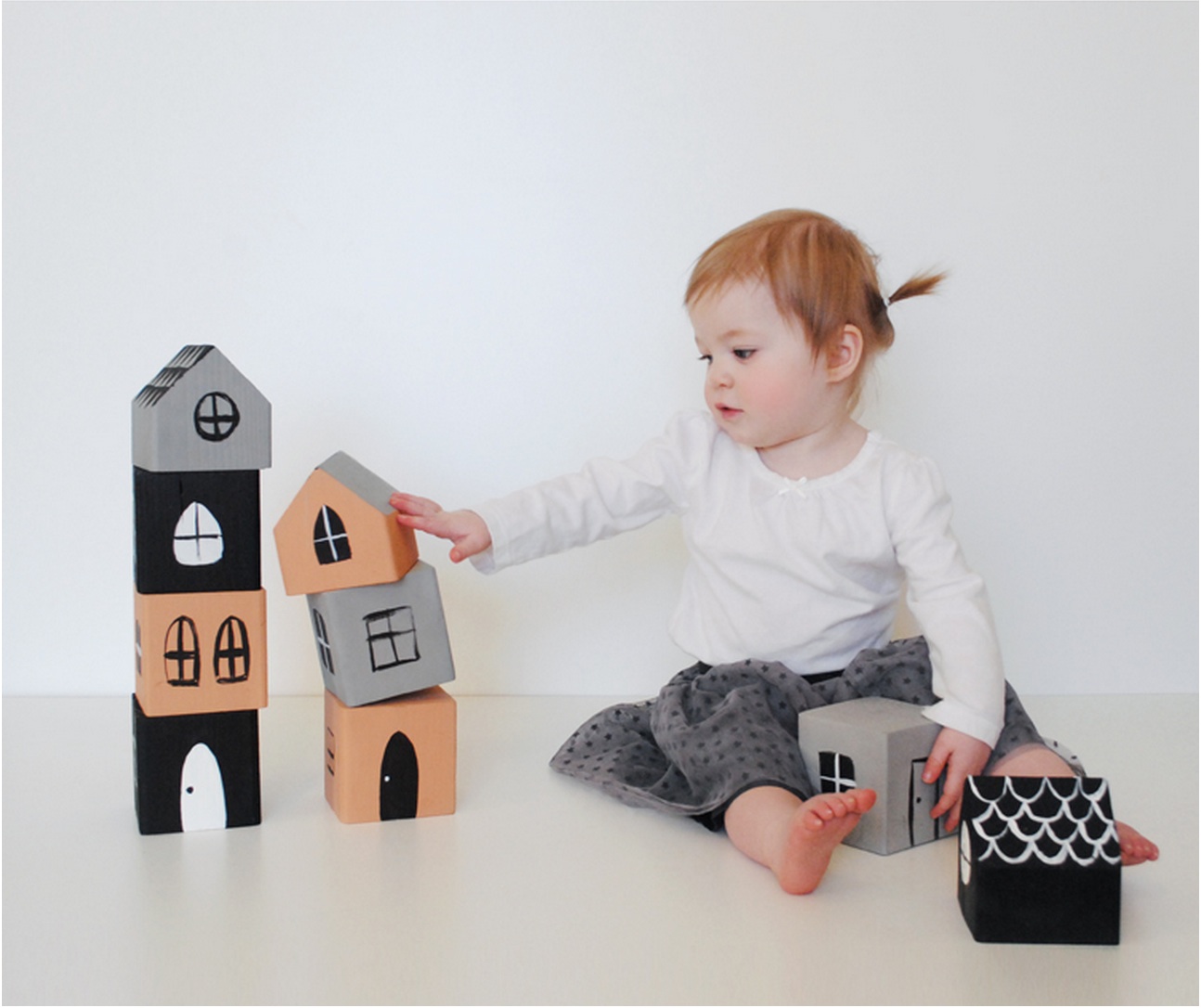
Parenting through Play: Dad’s Guide to Board Games
Finding the right way to bond with your kids can be a challenge. This article is written by a certified parent educator who knows the ropes. We’ll show you how board games can bring your family closer and make learning fun for everyone. Get ready to play!
Key Takeaways
- Board games strengthen family bonds by creating special moments where parents and kids share laughter and face challenges together.
- Playing board games is not just fun but educational, teaching children critical thinking, problem – solving skills, and boosting their reading through playful competition.
- Games encourage important communication skills, helping kids articulate strategies and listen carefully, which are crucial for social interactions outside the home.
- Organizing regular game nights can build anticipation and excitement in the family, fostering deeper connections through shared experiences.
- Board games provide a relaxed platform to discuss important life lessons like teamwork, patience, strategic planning, and dealing with wins or losses gracefully.
The Importance of Play in Parenting
Playing with children strengthens bonds and promotes learning, as well as building essential communication skills. Engaging in play also creates enjoyable memories and connections between parents and children.
Strengthening bonds
Board games turn ordinary afternoons into special moments that bring families closer. They create a space where parents and children share laughter, face challenges together, and enjoy each other’s company deeply.
This shared joy fosters a strong bond between family members, making the parent-child relationship stronger.
Testimonials from other parents reveal how board game sessions have become cherished bonding experiences. These stories underline the power of simple activities like playing strategy games or slapjack to knit hearts closer.
Through these games, every roll of the dice or move on the board becomes an opportunity for dads to connect with their kids on a meaningful level.
Promoting learning
Playing board games with your kids does more than just fill the room with laughter; it turns every roll of the dice into a learning moment. Games like Scrabble boost reading skills as players compete to spell out words for points.
Chess, known for its complexity, teaches children and adults alike how to think ahead, strategize their next move, and understand the consequences of their actions. These games encourage everyone to level up their thinking processes.
Strategy board games especially shine in promoting learning by fostering critical thinking and decision-making skills. Every choice made during gameplay can lead to victory or defeat, teaching players about planning and adaptation.
Children learn that each move they make on the game board mirrors life’s decisions—some are immediate wins while others are lessons dressed as setbacks. Through these interactive play sessions, dads can guide their children in understanding key concepts such as cause-and-effect relationships without turning it into a traditional classroom lesson.
Building communication skills
Board games serve as a bridge for opening channels of communication between parents and kids. They create a relaxed environment where everyone feels comfortable to speak up, share ideas, and express their feelings.
This setting becomes especially valuable when tackling more complex topics that might be challenging to discuss in everyday situations. Games also encourage players to describe their thought processes, leveling-up their ability to articulate strategies or reasons behind certain moves.
This interaction not only boosts children’s verbal skills but also teaches them how to listen carefully and respond thoughtfully during gameplay. As toddlers grow into teenagers, these communication skills become critical tools for navigating social situations outside the home.
The Benefits of Board Games in Parenting
Board games promote critical thinking, encourage teamwork, and develop patience and strategy in children. They provide a platform for kids to learn how to navigate challenges, work with others, and think strategically.
Promoting critical thinking
Playing board games challenges kids to think critically. They must make decisions, anticipate opponents’ moves, and evaluate outcomes. This mental exercise strengthens their problem-solving skills in a fun environment.
Games with strategy elements, like chess or complex cooperative games, push players to develop logical thinking and adapt their strategies on the fly.
Engaging in these activities also teaches children how to deal with uncertainty and change. They learn that not all problems have straightforward solutions, mirroring real-life scenarios where critical thinking is invaluable.
Through play, families can enjoy entertainment while promoting educational values, making board game nights both enjoyable and enriching experiences for everyone involved.
Encouraging teamwork
Transitioning from promoting critical thinking to encouraging teamwork, board games such as cooperative ones like Forbidden Island and Pandemic promote collaboration and communication among players.
These types of games require individuals to work together, strategize collectively, and make joint decisions in order to achieve a shared goal. Through this collaborative process, kids learn the value of teamwork, develop social interaction skills, and strengthen their ability to work with others towards a common objective.
The sense of unity fostered during gameplay can carry over into family relationships outside of game time.
Developing patience and strategy
Board games are effective tools for teaching children the value of patience and strategy. They require players to wait their turn, think through their moves, and adapt to unexpected situations.
By engaging in these activities, children can learn to be patient while honing their strategic thinking skills. As they navigate game scenarios and make decisions based on specific objectives, they develop a better understanding of planning and foresight.
Strategy board games like chess or checkers involve forward-thinking gameplay that encourages kids to strategize several steps ahead. This helps them grasp the concept of cause and effect while learning how strategic choices affect outcomes.
Board Games that Nurture Relationships
Board games that nurture relationships encourage deeper connections and meaningful interactions, making family time more enjoyable. For more insights on strengthening family bonds through play, keep reading!
Games that promote conversation
Strategy board games, such as Scrabble and Codenames, encourage conversation and interaction among players. These games provide an excellent platform for families to engage in meaningful discussions while having fun together.
Players must communicate effectively to strategize and plan their moves, fostering a conducive environment for open dialogue.
Outfoxed! is another game that promotes conversation through cooperative play. It encourages players to work together and communicate effectively to solve the mystery, enhancing teamwork skills while nurturing relationships.
Games that encourage cooperation
Settlers of Catan involves negotiation and trading resources, fostering cooperation among players. Players work together to build their civilizations by sharing and exchanging goods without a clear winner until the end, promoting teamwork and collaboration.
Outfoxed! is another cooperative game that encourages joint planning to solve the mystery before the thief escapes.
Encouraging cooperation in games fosters teamwork skills in children as they communicate, strategize, and make collective decisions. These collaborative activities help kids develop vital social abilities while having fun engaging with others through shared objectives and problem-solving.
Games that foster learning
Strategy board games such as Chess and Ticket to Ride: First Journey are designed to teach complex thinking, planning skills, and future planning without incentivizing competitive behavior.
These games help children think ahead, plan their moves, and invest in long-term strategies. Outfoxed! also encourages observation skills, math, cooperation, and strategy development by design.
For instance, playing maki rolls or theologian themed board games allows for engaging with concepts of problem-solving outside a traditional classroom setting. Such games promote learning through critical-thinking exercises and strategy building while having fun.
Dad’s Guide to Board Games
Dads can choose age-appropriate board games and organize regular game nights to connect with their kids. Board games offer a platform for discussing important topics while having fun and spending quality time together.
Choosing age-appropriate games
When selecting age-appropriate games for kids, consider their developmental stage and interests. Look for games that offer simple rules and quick play sessions for younger children, while older kids may enjoy more complex games that challenge them cognitively.
Consider thematic content and game duration when picking games. Games with shorter playtimes are suitable for young kids’ attention spans, while older children will likely engage better with longer, more intricate games.
Always prioritize a balance between entertainment and educational value to ensure the most enjoyable experience for your child.
Setting up a regular game night
Organize a weekly family game night, setting aside dedicated time for everyone to come together and enjoy board games. Establishing a regular routine helps build anticipation and excitement for the event.
Rotate the responsibility of choosing which game to play among family members, allowing each person to feel empowered and involved in the process.
Creating a comfortable and inviting space for game nights enhances the experience. Prepare snacks or refreshments that everyone can enjoy while playing. By consistently hosting game nights, families can foster deeper connections and create lasting memories while engaging in enjoyable activities together.
Using games to discuss important topics
Transitioning from setting up a regular game night to using games to discuss important topics can be an excellent way for dads to engage with their children on important subjects. Board games provide a relaxed environment where kids feel comfortable expressing themselves, making it easier to approach delicate topics like school challenges, friendships, or problem-solving skills.
Incorporating board games into these conversations not only deepens the bond between dads and kids but also cultivates critical thinking and communication skills.
Board games offer a unique platform for discussions that might otherwise be awkward or difficult. Through gameplay, children can learn about teamwork, strategy, and decision-making while addressing pertinent issues in a fun and non-confrontational manner.
How Board Games Transform Relationships
Playing board games fosters stronger connections and understanding among family members. Collaborating through gameplay helps build trust, empathy, and respect within relationships.
Personal stories of relationship improvement
Playing board games has had a significant impact on many families, with parents noticing positive changes in their relationships. One parent mentioned how playing board games brought the family closer together, providing a fun and relaxed environment where everyone could enjoy each other’s company.
Another parent shared how playing board games helped improve communication between family members, as it created opportunities for open discussions and laughter.
Additionally, one father mentioned that through playing board games regularly with his children, they learned to work as a team and understand the importance of taking turns. Moreover, another parent highlighted how board games helped teach important life skills such as patience and strategic thinking while creating lasting memories for the entire family.
Lessons learned from playing board games
Transforming relationships through board games has led to valuable lessons. Children learn critical thinking, problem-solving, and essential life skills by engaging in strategic gameplay.
Board games serve as a platform for families to bond and communicate effectively while having fun.
Engaging in board games fosters teamwork among family members and encourages healthy competition, teaching children the importance of taking turns and respecting others’ decisions.
Through board games, parents can instill patience, perseverance, and adaptability in their children’s behavior. Additionally, game nights create opportunities for open discussions about winning graciously or dealing with losses – all vital life lessons that contribute to overall character development.
Transforming relationships through board games is a rewarding and enjoyable way to connect with your children. Kids from different age groups can join in on the fun, creating lasting memories.
As you navigate the world of board games, remember that the time spent together is invaluable. Embrace the laughter and learning that come with every roll of the dice or draw of a card!
FAQs
1. What is “Parenting through Play: Dad’s Guide to Board Games”?
“Parenting through Play: Dad’s Guide to Board Games” is a guide that helps dads find fun and educational board games to play with their kids, strengthening bonds and teaching valuable skills.
2. How can playing board games help my child learn?
Playing board games can teach children important skills like taking turns, strategic thinking, and problem-solving while also helping them improve their math and reading abilities.
3. Are there specific types of board games that are best for learning?
Yes! Look for board games that challenge your child’s thinking or involve counting, spelling, or strategy. These types of games make learning fun and interactive.
4. Can playing board games together really make me closer to my child?
Absolutely! Spending quality time playing board games allows you both to laugh, learn together, and create lasting memories which strengthens your relationship.



